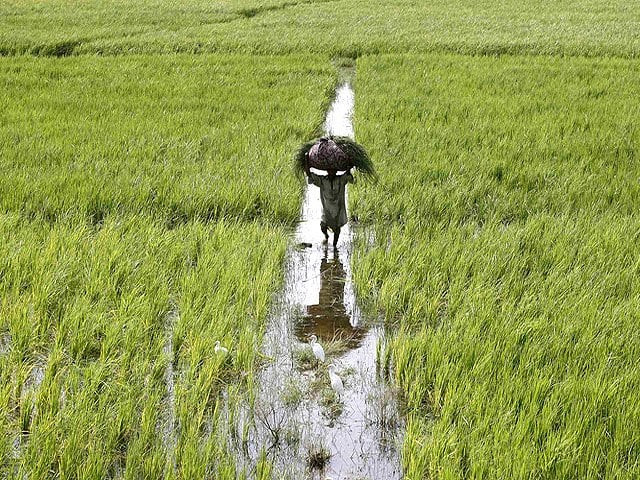Corporates strive to fix agri-sector
Aim to double cotton output, increase rice exports, control post-harvest losses

Pakistan’s corporate sector has joined hands to fix the agricultural sector by doubling cotton production in a pilot project and increasing rice exports from the current level of around $2.5 billion a year.
The corporate sector has established electronic warehouses to control post-harvest losses, conduct proper grading of crops, develop brands and step up exports.
Banks, insurance firms, fertiliser manufacturers and food companies, among others, have assembled under the umbrella of the Pakistan Agricultural Coalition (PAC). It is offering solutions to the crippling agricultural sector as Pakistan is an agriculture-based economy.
"Pakistan is the agricultural superpower. However, it has fallen sick," remarked PAC Strategy Adviser Kazim Saed in a media briefing on Monday.
Announcing the organisation of a one-day agricultural conference in mid-March, Saeed highlighted that “Pakistan is a giant cotton producer and ranks eighth in wheat harvest out of 120 wheat-producing countries across the world.”
Pakistan produces three major crops namely wheat, paddy (rice) and maize worth a total of $12 billion a year. However, it bears post-harvest losses of $1 billion (slightly over 8%) owing to the lack of a suitable storage capacity and supply chain issues, he said.
"It is a must to fix the agricultural sector to achieve food security, ensure import substitution, and increase exports of cotton, textile and rice."
Pakistan had achieved a record high cotton production of around 15 million bales in 2014-15 but since then production has remained on the wane.
Cotton harvest is estimated to stay below 5 million bales in the current season (FY23).
Consequently, the country is compelled to import cotton worth around $2 billion this year to meet the need of the export-focused textile industry. Textile is the largest export sector that fetches 60% of total export proceeds.
PAC has designed a programme to establish Pakistan’s first world-class cotton seed company to provide farmers with high-germination, high-yielding, highly pure and highly pest and insect-resistant cotton seeds.
“These varieties...have achieved double the germination levels of existing varieties in the market and have nearly 100% purity. Their commercial-scale cultivation started in 2021 over 40,000 acres of land and reached 80,000 acres in 2022,” said Saeed.
The agri-coalition has raised $2 million in equity from Pakistan’s blue-chip companies for Naymat Collateral Management Company Limited, licensed by the Securities and Exchange Commission of Pakistan (SECP) as the country’s first collateral management company.
Naymat has entered into agreements with multiple banks to provide collateral-based lending services for farmers. Furthermore, storage facilities have received accreditation and Pakistan’s first electronic warehouse receipt has been issued.
“The regime will not only provide financial access to farmers but also create strong incentives for crop testing, grading and standardisation, proper storage, reduction in post-harvest losses, and preservation of crop quality for exports,” he said.
PAC had convinced the US Agency for International Development (USAID) to fund a feasibility study on grain storage to attract investment in this important segment of agri-economy.
The study was conducted in August-December 2020 to encourage agri-sector stakeholders to invest in storage.
“International Finance Corporation (IFC) is now supporting the ‘scale-up’,” he said.
Rice accounts for nearly 10% of Pakistan’s exports. Rice shipments stood at nearly $2.5 billion last year. Yet, rice yields are below the global average of 39 maunds per acre.
The coalition has been working to develop and implement a multi-year programme for increasing rice exports since December 2018.
Under the Area Yield Index Insurance (AYII) scheme proposed by PAC, if average yields drop below 70% of historical levels, then farmers will receive payouts.
The corporate sector-run insurance company has conducted a successful pilot of AYII in Punjab with Pula Advisers of Switzerland as the implementation partner, Scor of France as the global reinsurer and PAC as the project coordinator.
“Under the pilot, wheat farmers availing loans...in Gujranwala, Sheikhupura, Hafizabad and Pakpattan were provided AYII coverage bundled with their loan product. This pilot gave farmers in Sheikhupura payouts due to heat wave in 2022 – a first in Pakistan.”



















COMMENTS
Comments are moderated and generally will be posted if they are on-topic and not abusive.
For more information, please see our Comments FAQ